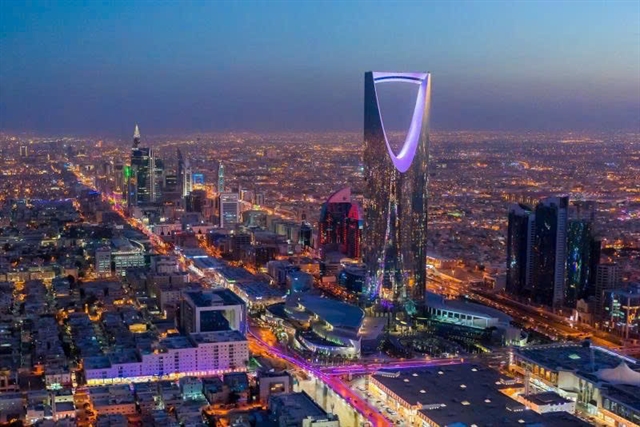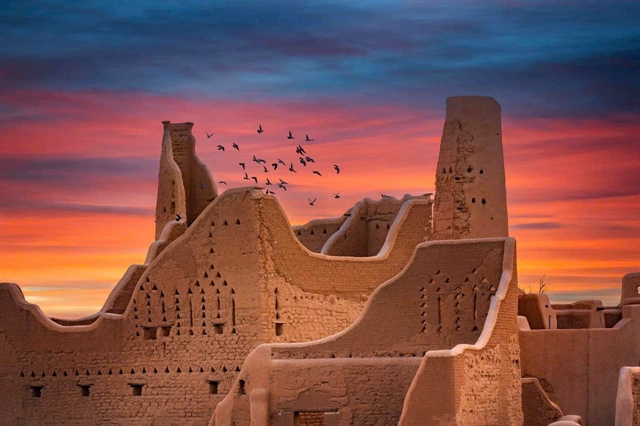 Politics & Law
Politics & Law

Ambassador of the Kingdom of Saudi Arabia, Mohammed Ismaeil A. Dahlwy, wrote to Việt Nam News, on the occasion of the 95th National Day of the Kingdom of Saudi Arabia.
Each September, both the Kingdom of Saudi Arabia and the Socialist Republic of Việt Nam commemorate their National Days.
This September holds special distinction, as the celebrations of our two nations converge in a shared spirit of pride and achievement. On September 2, the Socialist Republic of Việt Nam marked the 80th anniversary of the August Revolution and National Day with solemn, joyful events that showcased the inner strength, patriotism and unity of the Vietnamese people. I was honoured to witness and share in this remarkable atmosphere in Việt Nam.
 |
| Riyadh, the Capital City of the Kingdom of Saudi Arabia. Photo riyadhtrips.com |
It is a meaningful coincidence that, on September 23, the Kingdom of Saudi Arabia jubilantly celebrates its 95th National Day under the theme 'Pride in Our Nature'.
This theme reflects our reverence for roots, culture, identity, authenticity and generosity, and also embodies our ambition, vision, spirit of giving and readiness to extend support. As the day draws near, a vibrant sense of esteem can be felt across the Kingdom. Flags wave proudly in every corner, and their green hue illuminates streets nationwide.
This occasion is not only a commemoration of the Kingdom’s unification and founding in 1932 under His Majesty King Abdulaziz bin Abdulrahman Al-Saud, but also a moment to reflect on achievements under Saudi Vision 2030.
The year 2024 represents another strong chapter in the Vision’s journey. Out of 1,502 initiatives launched, 674 have been completed and 596 remain on track for 2030. Notably, 257 indicators exceeded their annual targets, and eight long-term targets were achieved six years ahead of schedule.
Saudi Arabia’s 2024 performance showed momentum beyond oil. Investment and private-sector dynamism lifted non-oil activities to a record share of real GDP: real non-oil GDP grew 4.3 per cent year-on-year, overall real GDP rose 1.3 per cent, and the non-oil share reached about 51.4 per cent (up from 47.5 per cent in 2014).
The Kingdom’s role as a regional business hub strengthened, with at least 571 international companies establishing regional headquarters - already exceeding the Vision 2030 target.
Digital transformation was equally notable. In the UN E-Government Development Index, Saudi Arabia advanced 25 places since 2022 to rank sixth globally, nearing its top-five Vision goal. The Kingdom now ranks seventh worldwide in the E-Participation Index; first regionally, second within the G20, and fourth globally in the Online Services Index; fourth globally in the Digital Services Index; and second within the G20 in the ITU’s ICT Development Index.
Social outcomes kept pace. By Q4 2024, unemployment among Saudi nationals fell to 7.0 per cent, meeting the Vision 2030 target, while female labour-force participation reached 36 per cent, surpassing the 30 per cent benchmark set for 2030.
 |
| Diriyah, the birthplace of the Kingdom of Saudi Arabia, a vital source of cultural identity and national pride. Photo en.m.wikipedia.org |
Culturally, recognition of Saudi heritage deepened: by 2024, sixteen cultural elements were inscribed on UNESCO’s Intangible Cultural Heritage list and eight Saudi sites were listed as World Heritage, underscoring the breadth and diversity of the Kingdom’s legacy.
On June 17, 2025, the Member States of the Bureau International des Expositions granted final approval to the Registration Dossier for Expo 2030 Riyadh, reaffirming international confidence in the Kingdom’s vision and hosting capabilities. The Kingdom welcomes broad participation in an exceptional World Expo - 'an exhibition from the world and to the world' - including from Việt Nam.
Amid this global engagement, the Kingdom continues to expand and strengthen its economic partnerships worldwide, with Việt Nam a vivid example.
Recent years have seen broader cooperation across diplomacy, economics, culture, and people-to-people exchange through bilateral mechanisms, GCC–ASEAN frameworks, and multilateral forums. More high-level and technical visits are expected to translate opportunities into concrete agreements and projects. Tourism is rising too: in recent months, over 10,000 visitors from Saudi Arabia have travelled to Việt Nam, highlighting the vitality of people-to-people links.
Economic cooperation is a defining pillar. Saudi Arabia is among Việt Nam’s leading partners in the Middle East, with bilateral trade up 53 per cent - from roughly US$2 billion in 2021 to over $3 billion in 2024.
Looking ahead, promising fields include renewable energy, information and communications technology, digital transformation, innovation, the Halal industry and tourism.
After three years in Việt Nam, I have witnessed first-hand the affinities between our peoples despite the geographic distance. I remain confident that our friendship will continue to deepen, turning shared aspirations into practical cooperation that advances development and prosperity for both nations. VNS